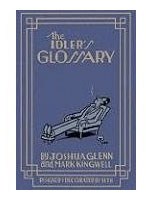Talking of the 70’s, I just finished Kenneth Morgan’s biography of Michael Foot (UK
(UK ). When I was about half way through, I told a good friend that it made me think worse of Foot, and this despite the fact that Morgan himself, while appropriately critical, is obviously a huge admirer. Now I’m done with the whole life (well, nearly the whole life, surely) I think better of him.
). When I was about half way through, I told a good friend that it made me think worse of Foot, and this despite the fact that Morgan himself, while appropriately critical, is obviously a huge admirer. Now I’m done with the whole life (well, nearly the whole life, surely) I think better of him.
The book is full of surprises – even if some of them are ones that you vaguely knew before, but hadn’t really believed. His friendship with, and sponsorship by, Beaverbrook, was just the tip of an iceberg. I didn’t know that Foot became, in later life, a close friend of Ian Gilmour. I did, somehow, know that he was a friend of Enoch Powell’s, but it is surprising nevertheless, and what is particularly surprising is that they seem to have become friends, on Foot’s initiative, shortly after the “rivers of blood” speech (Radio 4 had a very good evaluation of Powell last year, during which the son of some Tory MP told about how his parents, previously good friends of Powell’s, turned Powell away from the door the day after the speech, and never spoke to him again, which indicates just how unacceptable the speech was). They collaborated closely both on defeating House of Lords reform (Foot wanted it abolished, not turned into a House of place-men), and, obviously, opposing entry to, and then staying in, the EEC. Another close friend was Randolph Churchill, who twice challenged him in Devonport; they became friends, apparently, during the first campaign, when Foot and Jill Craigie would frequently give Churchill rides back from events where his Conservative election workers, who disliked him, had abandoned him. The second campaign was, apparently, vicious, and yet the friendship remained solid. A lifelong Republican, who has refused any and all honours, he became friends with the Queen when he was party leader, and also with the Queen Mother, who apparently admired his good sense in wearing his donkey jacket to the Cenotaph for the Remembrance ceremony. There’s better still: some MI5 report is quoted as saying the Foot, Benn, Mikardo, Driberg, Heffer, Hart, Castle and David Owen were “Labour MPs who are believed to be Communists and are in positions of influence”. Brilliant.
[click to continue…]
